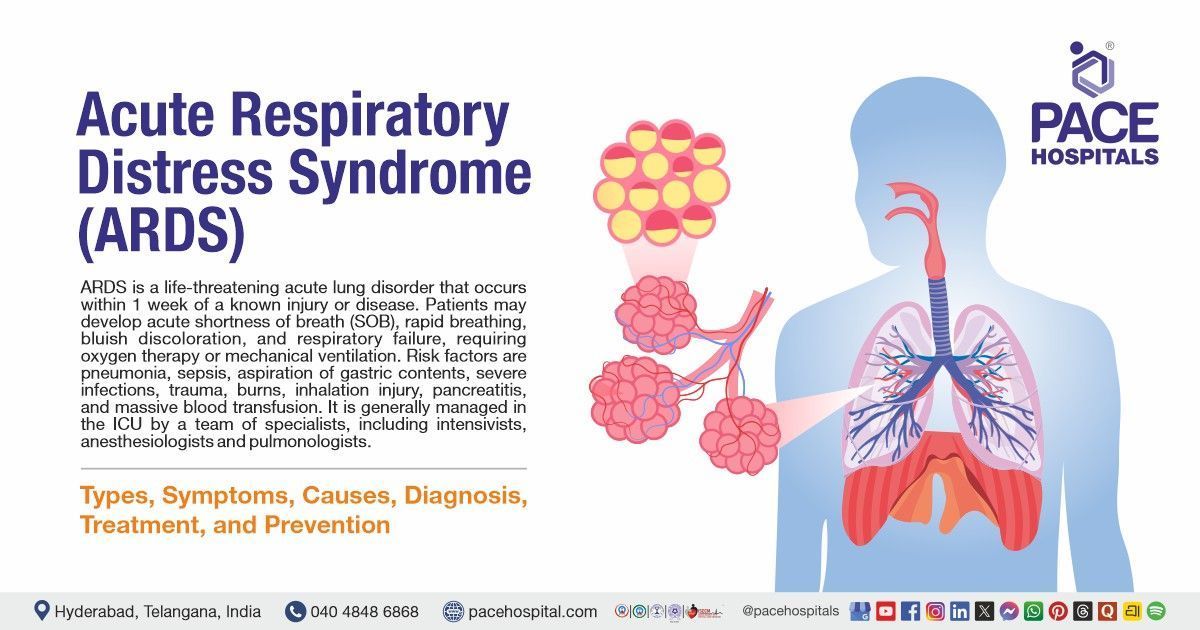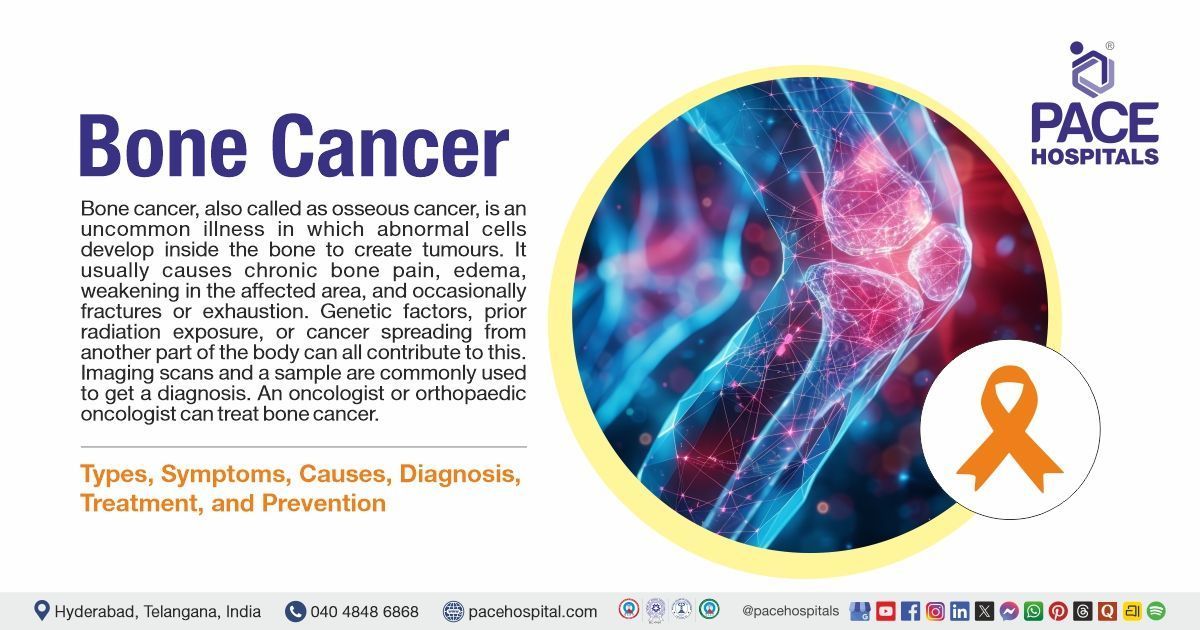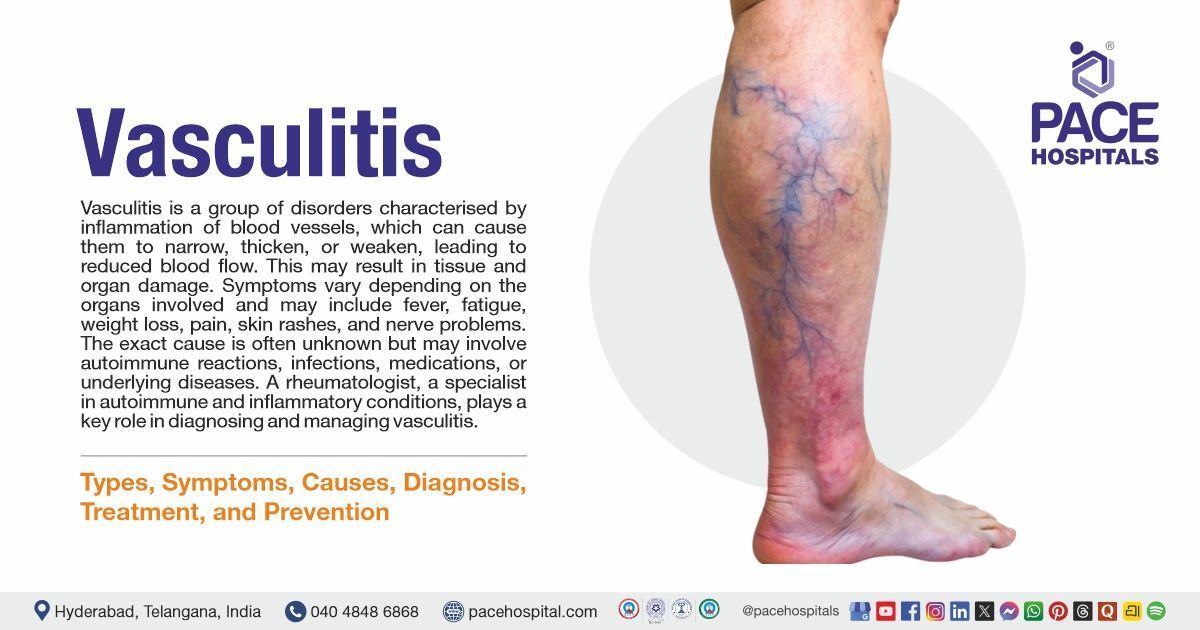Diagnosing Vitamin B12 Deficiency: What Doctors are Missing
PACE Hospitals
Written by: Editorial Team
Medically reviewed by: Dr. Mounika Jetti - General Physician and Diabetologist
Overview
Vitamin B12 deficiency is one of the most underdiagnosed nutritional problems worldwide — and yet one of the easiest to detect and treat. Unfortunately, many doctors only test for it after severe symptoms have appeared, particularly when blood tests show a condition known as macrocytic anemia.
But the truth is that macrocytic anemia develops years after B12 levels start dropping. By then, patients may have already suffered from chronic fatigue, weakness, brain fog, mood changes, or nerve problems — all of which could have been prevented with early detection and simple supplementation.
At PACE Hospitals, Hyderabad, our internal medicine, neurology, and nutrition specialists are transforming how Vitamin B12 deficiency is detected and managed — focusing on proactive testing, patient education, and lifestyle correction to prevent irreversible complications.
Why Doctors Miss Vitamin B12 Deficiency
Most physicians are trained to associate B12 deficiency only with macrocytic anemia — a blood condition characterized by large, immature red blood cells and low red cell count. This traditional approach delays diagnosis because:
- Macrocytic anemia appears late, often years after deficiency begins.
- Symptoms like fatigue and weakness appear much earlier but are often dismissed or attributed to stress, age, or psychological causes.
- Standard clinical guidelines lag behind new research, making many physicians rely on outdated diagnostic thresholds.
Research shows that neurological symptoms may appear even when hemoglobin levels are normal, meaning a person can have severe nerve or mental issues long before anemia develops.

The Hidden Epidemic of Fatigue
Fatigue is one of the most common symptoms reported in clinics — and one of the most overlooked signs of Vitamin B12 deficiency. When fatigue becomes chronic, it can drastically reduce productivity, affect mood, and impair daily functioning.
Doctors typically order thyroid, sugar, or anemia tests — but rarely check Vitamin B12 unless there’s visible anemia. This oversight leaves thousands of people untreated.
In the U.S. alone, over 1 million chronic fatigue patients might be suffering from undiagnosed Vitamin B12 deficiency, according to leading researcher Dr. Ralph Carmel. The same underdiagnosis trend is seen across India, where diets are often low in animal protein, and vegetarianism increases B12 deficiency risk.
Understanding Macrocytic Anemia
Macrocytic anemia refers to abnormally large red blood cells caused by impaired DNA synthesis, often due to low B12 or folate. However, macrocytic anemia ≠ Vitamin B12 deficiency. It is simply one possible consequence of the deficiency.
A person can suffer from Vitamin B12 deficiency for months or even years before macrocytosis (enlarged red cells) develops. During this time, neurological and psychological symptoms silently progress.
That’s why waiting for anemia to appear before testing for B12 deficiency is like waiting for an engine to fail before checking the oil.
Neurological and Psychological Impact
Vitamin B12 is essential requirement for nerve health, DNA synthesis, and red blood cell production. When levels drop, the body and brain are affected on multiple levels.
Common early symptoms include:
- Persistent fatigue
- Weakness or muscle loss
- Tingling or numbness (especially in hands and feet)
- Memory issues and “brain fog”
- Mood swings, anxiety, or depression
- Difficulty walking or balance problems
If untreated, long-term B12 deficiency can lead to:
- Peripheral neuropathy
- Cognitive decline and dementia-like symptoms
- Psychiatric conditions such as paranoia or psychosis
- Permanent nerve damage
According to studies by Dr. Norbert Goebels and Dr. Michael Soyka, Vitamin B12 deficiency is associated with a wide range of hematologic, neurological, and psychiatric disorders, often mimicking conditions like:
- Chronic Fatigue Syndrome
- Fibromyalgia
- Alzheimer’s or dementia
- Multiple Sclerosis (MS)
- Major depression or bipolar disorder
Because these illnesses have overlapping symptoms, B12 deficiency is often misdiagnosed or completely missed.
How Vitamin B12 Deficiency Is Diagnosed at PACE Hospitals
At PACE Hospitals, Hyderabad, early detection is key. Doctors perform a comprehensive clinical and laboratory assessment rather than relying solely on anemia.
Step-by-Step Evaluation:
- Detailed Medical History: Assessment of diet intake, if any medication used like proton-pump inhibitors, and prior gastric surgery performed previously or not.
- Physical Test and Neurological Examination: Checking for certain conditions such as nerve sensitivity, reflexes, and mental clarity.
- Blood Tests:
- Serum Vitamin B12 levels (normal range: 200–900 pg/mL)
- Methylmalonic Acid (MMA) and Homocysteine – Act as early markers of B12 deficiency
- Complete Blood Count (CBC) to check for macrocytosis
- Peripheral smear for red cell morphology
- Additional Tests (if required):
- Intrinsic factor antibody and parietal cell antibody tests for pernicious anemia.
- Folate levels to rule out combined deficiencies.
Treatment and Management
The good news: Vitamin B12 deficiency is easily treatable with supplementation. Treatment depends on the underlying cause:
| Cause | Recommended Treatment |
|---|---|
| Dietary deficiency | Oral supplements or dietary changes (meat, eggs, milk, fortified cereals) |
| Absorption problem (pernicious anemia, gastric surgery) | Intramuscular B12 injections |
| Drug-induced deficiency (metformin, antacids) | Medication review + supplementation |
At PACE Hospitals, therapy is customized based on test results, patient age, and comorbidities.

Dietary Sources of Vitamin B12
Vitamin B12 is found mainly in animal-based foods:
- Fish (salmon, tuna, sardines)
- Poultry and eggs
- Milk, cheese, and yogurt
- Fortified breakfast cereals for vegetarians
Vegetarians and vegans are at high risk for deficiency and should consider fortified foods or supplements.
PACE Hospitals’ clinical nutritionists guide patients in building balanced, sustainable diets that restore B12 levels safely.
Why Early Testing Matters
Early testing for Vitamin B12 deficiency can:
- Prevent irreversible nerve and brain damage
- Relieve chronic fatigue and mood symptoms
- Improve concentration and memory
- Enhance overall energy and productivity
PACE Hospitals encourages routine B12 testing for:
- Individuals with unexplained fatigue
- Patients with depression or neuropathy
- Vegetarians and elderly adults
- Those taking long-term metformin or acid-reducing medication
Cost of Vitamin B12 Testing and Treatment at PACE Hospitals
At PACE Hospitals, Hyderabad, the cost of:
- Vitamin B12 blood test: ₹700–₹1,200 (USD 8–14)
- Comprehensive deficiency panel (B12 + MMA + Folate): ₹2,000–₹3,000 (USD 24–36)
- Vitamin B12 injections: ₹500–₹1,000 per dose
Affordable diagnostic packages plan and cashless insurance options are available at PACE Hospitals Hitec City and Madinaguda branches.
What Patients Should Know
- Don't wait for anemia to be severe: Fatigue or numbness may be early signs.
- Vegetarians and elderly adults should monitor B12 yearly.
- Untreated deficiency can mimic serious neurological diseases.
- Testing is simple — a single blood test can reveal the problem.
- Treatment is effective — most patients feel better within weeks.
Why Choose PACE Hospitals for Vitamin B12 Deficiency
- Multidisciplinary approach – internal medicine, neurology, and dietetics under single platform.
- Comprehensive testing methods – early detection before anemia develops.
- Personalized therapy – oral, injectable, or IV supplementation.
- Nutritional counseling – long-term dietary correction plans.
- Advanced lab diagnostics – same-day results and accurate interpretation.
Frequently Asked Questions (FAQs) on Vitamin B12 Deficiency
Why do doctors often miss Vitamin B12 deficiency?
Many health professionals rely on macrocytic anemia as the main indicator. However, B12 deficiency can exist for years before anemia develops, causing unrecognized fatigue and neurological symptoms.
What are the early symptoms of Vitamin B12 deficiency?
Fatigue, brain fog, tingling in hands or feet, weakness, mood swings, and memory problems are early warning signs.
How is Vitamin B12 deficiency diagnosed?
Through blood tests including serum B12, MMA, homocysteine, and CBC. PACE Hospitals offers these tests with rapid reporting and interpretation.
Can you have Vitamin B12 deficiency without anemia?
Yes. Many patients develop neurological symptoms long before anemia appears, making early testing crucial.
What are the treatment options?
Treatment includes B12 tablets, injections, or IV therapy, depending on the cause. PACE Hospitals provides customized care plans.
What is Vitamin B12 deficiency?
It's a condition where the body lacks enough vitamin B12 to generate healthy red blood cells and maintain nerve function, leading to fatigue, weakness, and neurological issues.
How long does it take to recover?
Most patients feel better within 2–4 weeks of treatment. Nerve recovery may take longer if the deficiency is long-standing.
Who is at highest risk for Vitamin B12 deficiency?
Vegetarians, elderly individuals, patients on metformin or acid-suppressing drugs, and those with gastric surgery are most at risk.
What is the cost of Vitamin B12 test and treatment in Hyderabad?
At PACE Hospitals, tests cost ₹700–₹3,000, and treatment ₹500–₹1,000 per session, depending on the method and frequency.
Why choose PACE Hospitals for Vitamin B12 deficiency care?
PACE Hospitals offers early diagnosis, expert multidisciplinary care, personalized supplementation, and nutrition support under one roof.
Share on
Request an appointment
Fill in the appointment form or call us instantly to book a confirmed appointment with our super specialist at 04048486868











